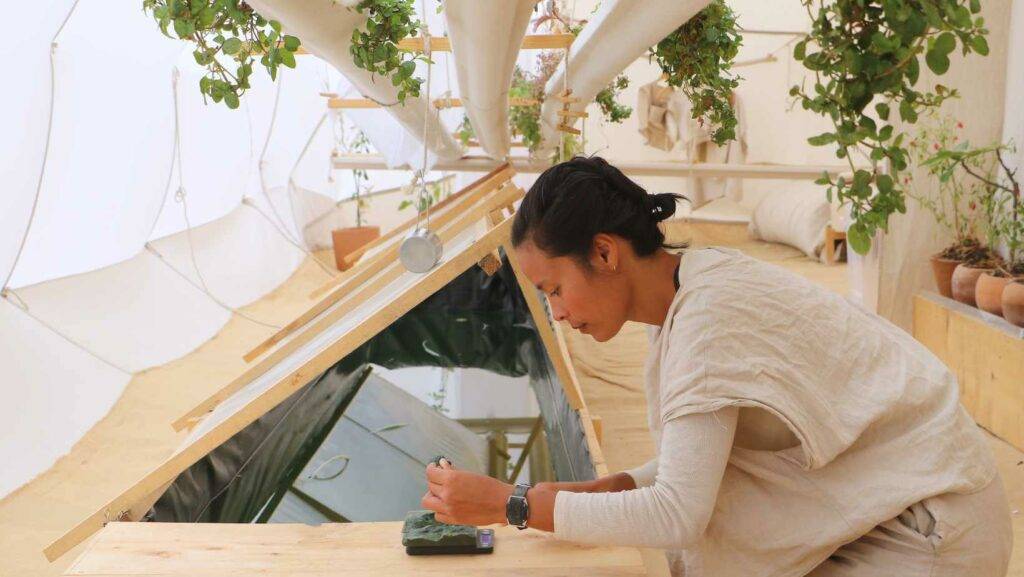Icam students collaborate on the Urban Biosphere
Icam
8 Feb 2024
A unique project, documented by Arte, in which students from Nantes and Grand Paris Sud create frugal innovations.
Living self-sufficiently with low-tech, low-resource technologies: that’s what Corentin de Chatelperron and the entire Low-Tech Lab team are demonstrating with their Biosphere project. After an initial solo experience in the tropical climate of Thailand, Corentin (an Icam engineer) spent 4 months in the Desert Biosphere in Mexico, in a duo with designer Caroline Pultz. Together, they experienced life in an arid environment, with a veritable low-tech ecosystem providing them with water, food and energy. Their adventure is the subject of an Arte webseries.

Caroline Pultz grows spirulina in the Desert Biosphere
A reality accessible to all
Today, Corentin wants to transpose this experience to an environment closer to home: the city. “Many people ask themselves how they can change their lifestyle to be more in line with their values, but they find it complicated in the city, he explains. We wanted to see how the low-tech innovations we’ve been collecting over the past ten years can be used to address this issue”. Corentin and Caroline are therefore preparing for a new experiment lasting several months, with the aim of demonstrating that “this is something everyone can do”, thanks to water, waste, health and financial savings indicators. In their 26 m2 apartment, for example, a spray shower will enable mushrooms to grow, a photobioreactor will produce spirulina, and “living” toilets, with larvae that recycle materials, will produce compost to feed edible plantations…
Four Icam Master Thesis of engineering
Corentin has asked Icam to create several low-tech innovations that will be installed in the Biosphere. For example, students from Grand Paris Sud are working on a rowing system which, while exercising, can generate electricity or run the washing machine. Other students are tackling the tricky issue of managing temperature and humidity regulation, with the aim of creating natural heating and cooling. Still others, in Nantes, are imagining a local wifi network, enabling data to be shared on a reduced scale, rather than being sent from one end of the world to the other in highly polluting datacenters (as is the case with all our data). “This project is coming to life thanks to a number of partnerships, such as with the French space agency (CNES), which is helping us, among other things, to create a software “assistant” for managing the ecosystem, and which will supply us with sensors to contribute to the project’s thermal and hygrometric regulation”.
The Urban Biosphere will be operational in July, for four months of experimentation. It’s also a whole human ecosystem that’s getting into action: a farm that supplies biogas for short-cycle cooking, mushroom cloneurs, larva breeders, and a collaboration with another Icam alumni, Paul Mouraz, to build an organic waste shredder. Hundreds of participants in the Paris region and beyond have signed up to contribute to the project as part of the participatory science program.
This adventure will also be documented by Arte, and we’ll be following it very closely!
//
To find out more, click here:
Arte webserie on Desert Biosphere
The Low-Tech Lab